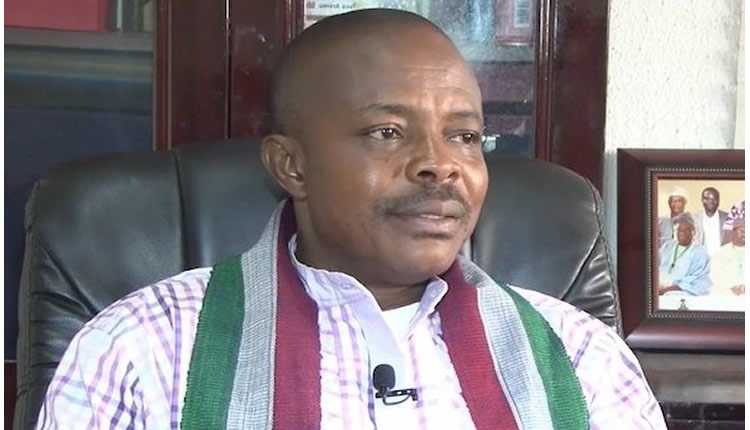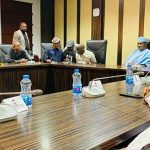The Labour Movement in Nigeria is up in arms against the Federal Government following the removal of subsidy on petroleum products by the Federal Government.
President Bola Tinubu had announced in his inaugural address on May 29, 2023, that the regime of subsidy on petroleum products in the country was gone for good.
The Nigerian Labour Congress (NLC), the umbrella body of Nigerian workers, and affiliated labour unions last week indicated labour unions will embark on strike from Wednesday, June 7, 2023, if the Federal Government did not rescind its decision on the removal of subsidy.
It is understandable that labour unions are kicking. As bodies defending the interests of workers who often bear the brunt of a harsh economic environment arising from policies of government, it is thus incumbent on it to respond to any policy that even remotely suggests the discomfiting of workers. Ordinarily, on that score, their position may be seen to have merit.
However, these are not normal times. Nigeria is in dire straits. Buffeted on all sides by social and security challenges, its economy is hemorrhaging with double digit inflation and high unemployment figure underscoring its very precarious situation.
An economy as parlous as ours cannot afford the continuing burden of an asphyxiating subsidy regime. It will quite simply collapse. The amounts spent on subsidy over the years are numbing.
Over the eighteen-year period between 2005 and 2023, Nigeria has spent an incredible N21 trillion ($30 billion) subsidizing petroleum products, the last eight years alone gulping near N13 trillion of that sum.
A recent report by Price Waterhouse Coopers (PWC) says households in the bottom 40 percent of income distribution accounts for less than 3 percent of all fuel purchases. It notes further:
“Three -quarters of all fuel sold in Nigeria is consumed by private firms, public transportation services, government agencies, and other businesses. Most vehicles carrying large numbers of people and goods are diesel powered, which is already deregulated.
Also, household kerosene, which is used mostly by the poor, is already deregulated, meaning that the poor are already to a large extent paying market prices for their fuel.”
The report identified some challenges besetting the subsidy programmes including its unsustainable financial cost, economic distortion, smuggling, endemic corruption, and low investment in the downstream sector.
These are obviously matters of serious concern that should exercise the minds of leaders of the Nigerian labour movement.
That the Nigerian government according to the Debt Management Office (DMO) had to borrow to N1 trillion to service its subsidy payments, which totaled N4.390 trillion in 2022, should worry every patriotic Nigerian especially when it is considered that total government spending on three critical sectors (education, healthcare and infrastructure) for the same year, stood at N3.530, a clear N860 billion less!
Mr. Joe Ajaero, President of the NLC and his colleagues in the labour movement ought to be disturbed by this. They should know that if in the past government had been unable to meet its commitments and fulfill its obligations to workers and Nigerians in general; it was partly due to this unrealistic funding of the subsidy programme.
As Mr. Ajaero and other leaders of the labour know, the immediate past administration headed by former President Muhammadu Buhari had made it clear that the regime of subsidy would end by June 2023. For that reason, his government made no appropriation for it in the 2023 budget.
So, when President Tinubu announced in his inaugural address that subsidy was gone, he was merely repeating what everyone knew.
As a responsible leader, President Tinubu well understands the impact the removal of subsidy will have on workers and has assured that he is committed to increasing the salaries of workers to enable them meet up their responsibilities in the post-subsidy era.
This should gladden the hearts of Mr. Ajaero and his colleagues because for long organized labour has clamoured for an increase in minimum wage from the paltry N30, 000 it currently rests.
Calling out workers on strike at this time will surely have unintended consequences not the least of which is loss of revenue to an economy already reeling on the floor.
A more pragmatic approach ought to be adopted in the present circumstances and that approach would be for leaders of the labour movement to engage in meaningful discussions with the Tinubu administration with a view to extracting from it firm guarantees that every step necessary should be taken by the Federal Government to channel resources freed from the wasteful subsidy programme to policies and programmes that will be of real benefits to workers and Nigerians at large.
For a movement that has fought successive governments over their wasteful habits and unremitting corruption, the NLC should appreciate the wisdom behind scrapping the subsidy programme. Apart from helping to cushion the acquisitive lifestyle of the rich while further driving the poor into the ground, removal of subsidy will also help in checking the smuggling of petrol across our borders to neighbouring countries.
Last year Nigerian National Petroleum Company Limited (NNPCL) Group Chief Executive Officer, Mele Kyari, disclosed that consumption of petrol in Nigeria had increased to over 103 million litres with over 58 million smuggled out of the country.
The clear implication of this development is that Nigeria’s neighbours benefit more than Nigerians from the fuel produced here.
According to the PWC report referenced above, a similar report by Chapel Hill Denham estimates that about 15.64 million litres of petrol are smuggled daily out of Nigeria as the retail price of petroleum in Nigeria is 3.7 times cheaper than those of its neighbours.
The report also said the Nigerian Customs admitted that subsidized fuel is smuggled out of Nigeria to as far as Mali.
From all of this explained above, it does not make any sense to continue to waste scarce resources on a wasteful scheme that denies government of resources to improve on the well-being of its people.
The challenge before Mr. Ajaero and other key officials is to partner with government to find a way to re-direct funds which ought to have been spent in subsidizing petrol to more useful projects.
The Tinubu administration is barely one week in office and should be allowed to firm up its feet on the ground. It has made promises to the Nigerian people, which the labour movement as a champion of the peoples’ welfare should encourage it to fulfill. This it cannot do if with barely a week in office, it is confronted with unrest by labour, which at this critical time ought to guide it as a new administration in circumventing the landmines, which had stymied attempts by previous administrations, to deliver on qualitative programmes for the benefit of the people.
With the myriad of security challenges facing the nation, we cannot afford another incident that will plunge and already restive nation into further crisis. Mr. Ajaero and his colleagues should sheathe their swords and dialogue with government in the larger interest of workers and the Nigerian people.
Mrs. Ayuwei, is an English economics and politics commentator, columnist, journalist and author. She is also a Special Projects Editor at the Per Second News
























Leave a comment